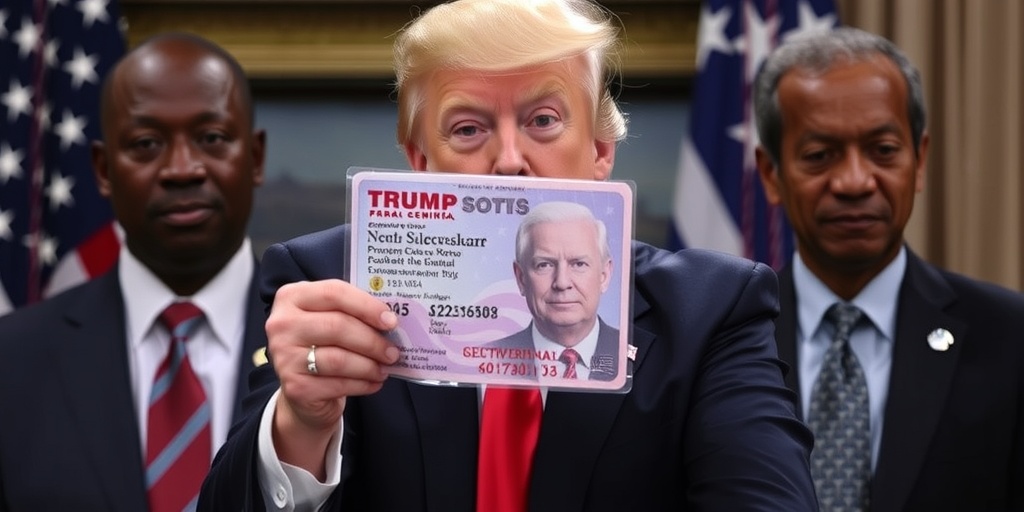Now Reading: Why Arabic ‘Sesame Street’ Cuts Are Misunderstood: It’s Not Just About Fraud
-
01
Why Arabic ‘Sesame Street’ Cuts Are Misunderstood: It’s Not Just About Fraud
Why Arabic ‘Sesame Street’ Cuts Are Misunderstood: It’s Not Just About Fraud
Title: Trump’s Criticism of Federal Spending Draws Mixed Reactions Over ‘Sesame Street’ Program
In recent remarks, President Donald Trump has taken aim at what he describes as unnecessary federal spending, citing specific programs as examples of what he views as government waste. Among these, he has particularly called out the Arabic-language version of “Sesame Street,” which he claims costs taxpayers nearly $20 million. During a joint congressional session, Trump highlighted this program while advocating for a more streamlined, efficient government devoid of what he terms “woke” ideology.
However, the funding for “Sesame Street” in the Middle East has been a bipartisan effort, supported by officials from both major political parties over the years. Notably, Andrew S. Natsios, a former leader of the U.S. Agency for International Development (USAID) under President George W. Bush, has defended the program. He described it as “the biggest weapon against Al Qaeda and Islamic extremism,” recalling its success in fostering positive views towards the West among children in Egypt during the time it was funded by the U.S. government.
The show serves as an example of "soft power," a diplomatic strategy aimed at promoting goodwill and influence rather than coercive approaches. Trump’s administration, however, appears to favor more aggressive tactics, often interpreting criticisms of government spending as potential fraud. Although claims of fraud have been made, many of these assertions seem to stem more from differing political ideologies than from concrete cases of corruption.
The Trump administration, along with Elon Musk’s Department of Government Efficiency (DOGE), has accused various entities, including media companies, of collusion with Democratic administrations. The payments these companies received were actually subscriptions acquired by various administrations regardless of party affiliation. Also, the administration has exaggerated issues related to Social Security, such as falsely asserting that millions of deceased individuals may still be receiving benefits.
Mr. Natsios pointed out how many items cited by Trump as waste are actually investments. For instance, he mentioned an initiative that helped Ukrainian women develop a competitive textile industry by introducing them to potential markets through trade shows. Such programs were being depicted as extravagant wastefulness by the current government.
National sentiment appears to lean towards reducing government size and expenditure, and many Americans contest the idea of foreign aid. Musk has stated that his agency has successfully cut wasteful spending, including redundancies like unnecessary software licenses and underutilized office leases. Yet, Trump and his administration have framed the narrative around these cuts as revealing a deeper issue of fraud and “kickbacks,” urging the Attorney General to investigate further.
White House Press Secretary Karoline Leavitt underscored this stance, arguing that even perceived waste constitutes a form of fraud. She cited funding for mastectomies in Mozambique as an example, asserting that such spending should not burden American taxpayers.
Leavitt’s comments pertain to USAID’s long-standing efforts to enhance healthcare access in Mozambique, particularly for the rural poor. Meanwhile, as part of the administration’s push for accountability, DOGE has expressed intentions to look closely at contracts related to providing shelter for unaccompanied migrant children, leading to an investigation of a private firm involved in this effort.
Despite these claims of rectifying fraud, critiques have emerged regarding the thoroughness of the investigations. Analysts, including Dylan Hedtler-Gaudette from the Project on Government Oversight, suggest that the administration has not demonstrated significant new evidence of fraud and appears to be targeting programs that serve their political interests rather than committing to comprehensive accountability measures.
The Trump administration has released lists purporting to show examples of waste and fraud but many of those projects are viewed as subjective and politically motivated. Moreover, two of the cited lists were derived from reports and studies produced during the previous Biden administration rather than original findings from Trump’s government or Musk’s team.
As the Trump administration continues its push for spending cuts, it has paradoxically dismissed nearly 20 inspectors general whose roles include uncovering fraud and waste within federal programs. Michael J. Missal, a former inspector general at the Department of Veterans Affairs, stated that his team had uncovered over $45 billion in savings during his tenure. He argued that the administration’s push against independent oversight is counterproductive to their claims of addressing fraud.
Looking forward, funding cuts to various programs are set to impact initiatives like the Arabic-language “Sesame Street.” While the principal version, “Ahlan Simsim,” will persist, former funding meant for educational resources in Iraq has been terminated, as stated by the Sesame Workshop.
In summary, as Trump and Musk advocate for stringent cuts and claim vast amounts of fraudulent spending, critics argue that many accusations lack substantial backing and represent merely political posturing rather than actual corruption. The debate around government spending and aid continues to split various factions of American society, with differing opinions on the effectiveness and importance of these programs.
Stay Informed With the Latest & Most Important News
Previous Post
Next Post
-
 01New technology breakthrough has everyone talking right now
01New technology breakthrough has everyone talking right now -
 02Unbelievable life hack everyone needs to try today
02Unbelievable life hack everyone needs to try today -
 03Fascinating discovery found buried deep beneath the ocean
03Fascinating discovery found buried deep beneath the ocean -
 04Man invents genius device that solves everyday problems
04Man invents genius device that solves everyday problems -
 05Shocking discovery that changes what we know forever
05Shocking discovery that changes what we know forever -
 06Internet goes wild over celebrity’s unexpected fashion choice
06Internet goes wild over celebrity’s unexpected fashion choice -
 07Rare animal sighting stuns scientists and wildlife lovers
07Rare animal sighting stuns scientists and wildlife lovers



















